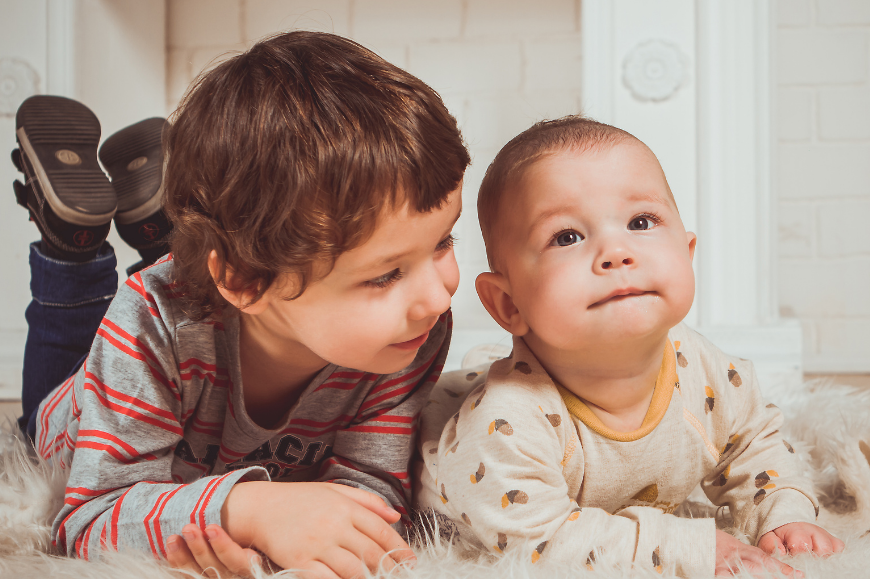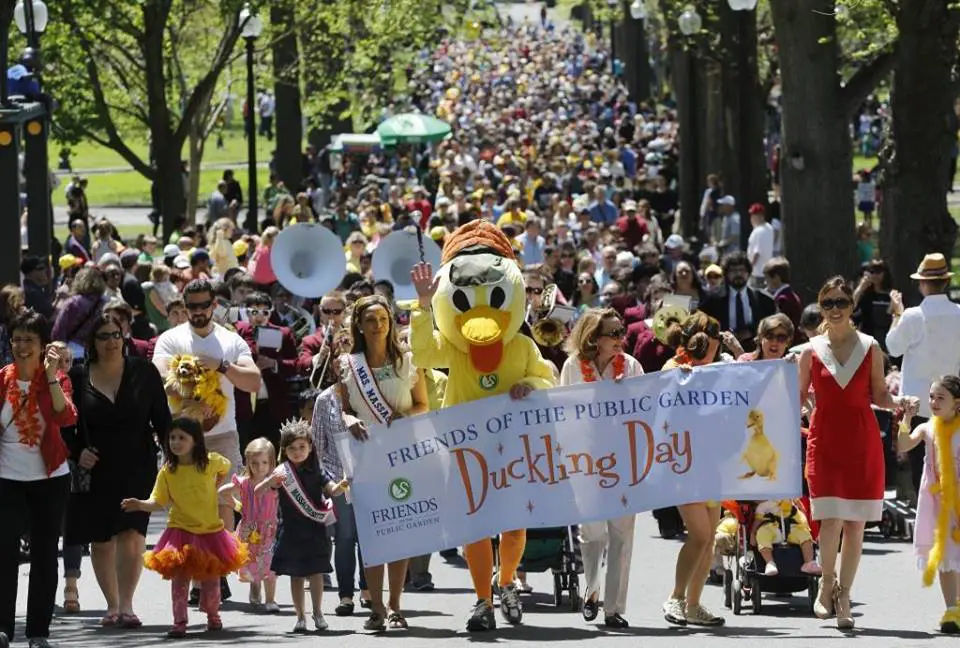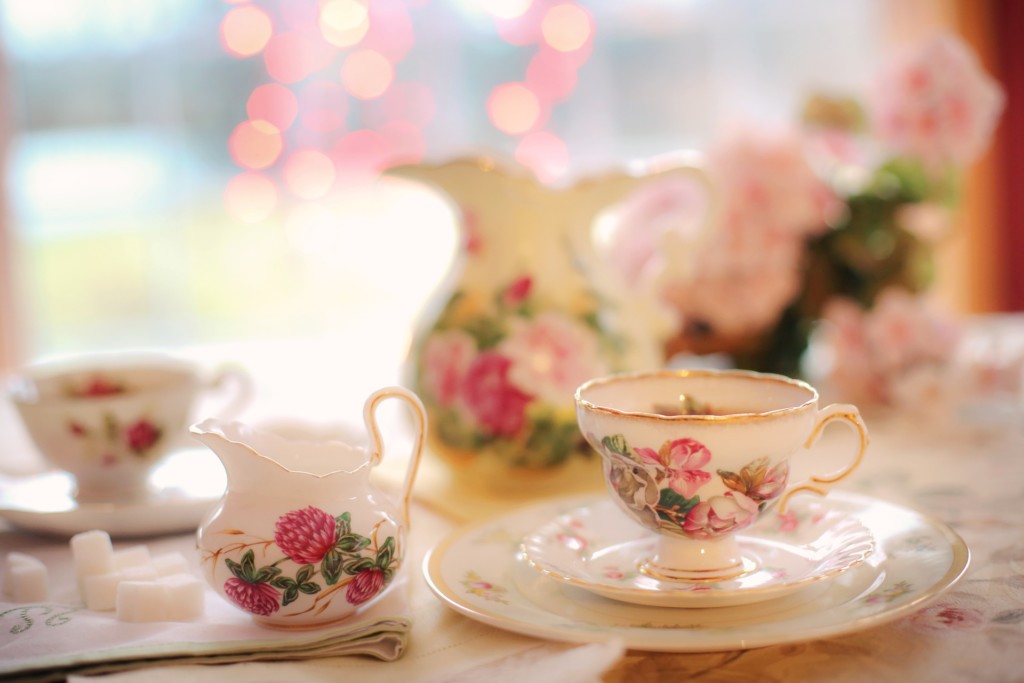Everyone said, “Having two is hard, but when your second is born you’ll love them both more than you ever imagined you could.”
For me, it just wasn’t true.
When my second daughter was born, I was smitten. It was the love they had always talked about. With my first child, I had third-degree tears, constipation, and the crazy emotional detachment that clings to me when I’m confronted with a situation I’m not familiar with. I just didn’t feel it at first. For those first few weeks, I worked to keep my reactionless newborn alive, all the while trying to coax validation out of her. “I change you, I feed you, I tore myself open to get you here, and I still just don’t feel it.”
Slowly, but surely, it changed. When my firstborn started smiling, a little seed of attachment was planted. Over time, it grew stronger out of the service I gave her. It wasn’t about getting, it was about giving. I was a mom now, life was a little more normal, I started to feel it. It was me and her. We were buddies. She knew how to make me laugh, and we would cuddle and share snacks on the couch, read books, play outside. Life was good.
When the second was born, all I wanted to do was snuggle my new human. “I’m in mom-mode — look at me! I feel the immediate attachment! This is what they were talking about!” Then the firstborn came to visit us in the hospital. She was more interested in the buttons on the bed than this baby girl, and I was more interested in the baby girl than I was in her.
It was the same when we got back home. Looking back on it now, I chalk it up to a medium dosage of postpartum depression. But it still breaks my heart to admit, with every time my first child hit her little defenseless sister, every time she tantrummed, every time tears streamed down her face, making it all red and blotchy, with her snot-faucet nose, I loved her a little bit less.
Until one day I just lost it. After bottling up so much negative energy toward my toddler mini-me, I declared to my husband through tears and a blotchy red face of my own, “I just don’t love her! I don’t feel love for her, what is WRONG with me what the HECK IS WRONG WITH ME?!”
Heaven forbid my firstborn ever reads this. Heaven forbid she thinks that is how the story ends.
Through the help of an understanding mom and husband, I groped my way back toward the love I once had for her. Each day was a battle to see through the fog of disappointment and self-loathing — and to act on the love I wanted to have. It might have been the hardest thing I’ve ever done. I realized that, unlike your spouse, you don’t get to choose your children. But you can CHOOSE them — choose to put them first, choose to love, choose to act as if eternity is your goal, so that the days and the months can be small even when they seem so gut-wrenchingly immense.
I learned to love her once, and then I did it again. And I am so proud of that. It gives me strength.
So though the days are hard and the nights are long, I can say that I do love both my children more than I ever imagined. It wasn’t easy, and maybe there will be more mountains to climb. But it’s where I am, and I would do it all again in a heartbeat.














That was a very brave post, and I absolutely commend your strength to put such honesty on paper for the world to see. I cannot say that I connected to your circumstance, but something did strike me in a way to influence this post – commenting is something I never do. Children have an immense ability to push every limit and test even the strongest of bonds. You do not get to pick the temperament of your child or any of the predispositions of their personality or character. Despite all the tips, tricks, and hacks offered via online “how tos” or the overwhelming unsolicited grocery isle advise, the truth is that the only helpful information comes in the form of ideas and mechanisms to help you cope through difficult stages, as well as guide your child through them. Having said that, (childhood psychology background) the affect of the strength of the bond between you and your child is not exclusive to you, but also immensely impacts your child. Tension, lack of affection, dismissal – all of those elements are also interpreted and absorbed by your child and the result is blatant awareness of how you feel about them. You cannot help the feelings you have do or do not have for anyone, your toddler included, and is no one’s fault. But that is just it – as much as it is not your fault, it is certainly not your young child’s fault. They feel the inevitable void that has settled in your relationship, yet the child does not know it is not their fault, and will likely rationalize the state of your relationship as something they have done. As they grow older, even through adulthood, they may aways see the struggling relationship the two of you had as a reflection of themselves through your eyes. Once again, you did not choose your child, but they did not choose you either. As a child of an unconditionally loving mother of three (if she had a favorite, we certainly have never been able to decipher which one of us it may be), I was very fortunate. However, my mother’s mother was not so, and shared many of the negative attributes of mothers aforementioned in the above comments. My mother and some of her siblings have all struggled to this day to maintain a healthy relationship with their mother because of residual feelings they have regarding the lack of love she showed them throughout their lives – their mother was not silent as to the level of love she did, or did not, feel for each of her respective children. Just as true as the statement “they will feel your love,” is the concept that children will also feel a lack thereof – a deficit that, even if temporary, may affect them the rest of their lives.
Having said all of that, my point is purely that parenthood is a struggle in so many ways, with ups and downs – but the beauty of parenthood is that the love for your child is what propels you through the downs, not just for you, but for them as well. Parenting is about sacrifice and giving, as difficult as it is at times, but you should need your children as much as they need you. The sadness is that in times of strife every bond is tested, and those in which a child feels they have been less loved may not resurface unbroken. The power of sharing your plight on this forum is commendable, but I do ponder if it was worth causing the inevitable hurt that may be sustained by your child should, god forbid, she ever read this. My mother’s mother made a similar statement to a few of her children, and the hurt they endured was devastating and irreparable – this is one bell that you cannot unring. In posting this before the world, your daughter included, did you truly “CHOOSE [your child] — choose to put [her] first, choose to love, choose to act as if eternity is your goal?”
I am in complete agreement with with AmyB. I love both my kiddos but the circumstances around my first born and second were so different and I think that has something to do with things. Also I nursed by second for 13 months whereas I couldn’t nurse my first at all and I know that affected our bond. My oldest and I are so much alike it scares me and my husband is her favorite by far. Still, I want so bad to have the same bond with my oldest. My time with her at home is halfway gone! Anyway, brave and honest post. Signed, mom who understands.
Though I admire your honesty, I thank God that my feelings for my first child were completely the opposite of yours. I had never felt love like the love I felt the very first time they placed her in my arms. I loved her before she was born(didn’t know if it was a boy or a girl), but oh what love I felt for her on that 27th of February. A love so complete. I have always said, I could not love her any more than the first day I held her against my chest. That has always been my comparison to the love God has for me. Though I know my love is incomparable to God’s love for me, I think it’s the closest we can ever get. And I gave felt the exact the same kind of love for each of my four children.
Thank you for posting this. I feel the same way and I thought I was a monster. Just like you said, I never felt that immediate bond with my first. He was so so difficult as a toddler, and is still such an intense, moody, brilliant little boy, he’s academically gifted and emotionally challenging, and so strong willed, and is just the complete opposite of myself, and so often I just don’t ‘get’ him and I don’t know how to relate to him, and he’s only six. His dad, who wasn’t hands on with him as a baby, is now much closer to him, and it makes me sad that we don’t have that connection and it’s my fault. My second is still a baby, but from the first moment we bonded, he’s such an opposite of his brother, laid back and mellow and cheerful all the time whereas my first was always unhappy and unsettled. He seems to reach out to me a lot more than my first did too, he always seemed to live “inside his brain” and not care much about what’s around him. I’m trying so hard not to show it and not to cause resentment between them, but it’s very hard not to acknowledge it….
Bless you! I had a little postpartum depression after a few months with my now 9 month old, beautiful baby girl and couldn’t feel the love I knew I had for her and her father. I clawed my out of it and it gave me insight to why I’ve never felt love from my own mother. Whereas I am her second child, I feel that she bonded with my older brother but did not with me. I don’t have much of a relationship with her anymore after 37 years of trying to earn her love, but I’m not angry anymore. I only wish she had put aside her pride to ask for help from her amazingly supportive family or had asked my dad to raise me instead. The hurt doesn’t come from her not being able to love me, but that she was too afraid of admitting her shortcomings to allow someone else to love me. I have been completely upfront and honest with my family and friends to ensure my baby feels loved and cared for, even if for a moment, it doesn’t come from me.